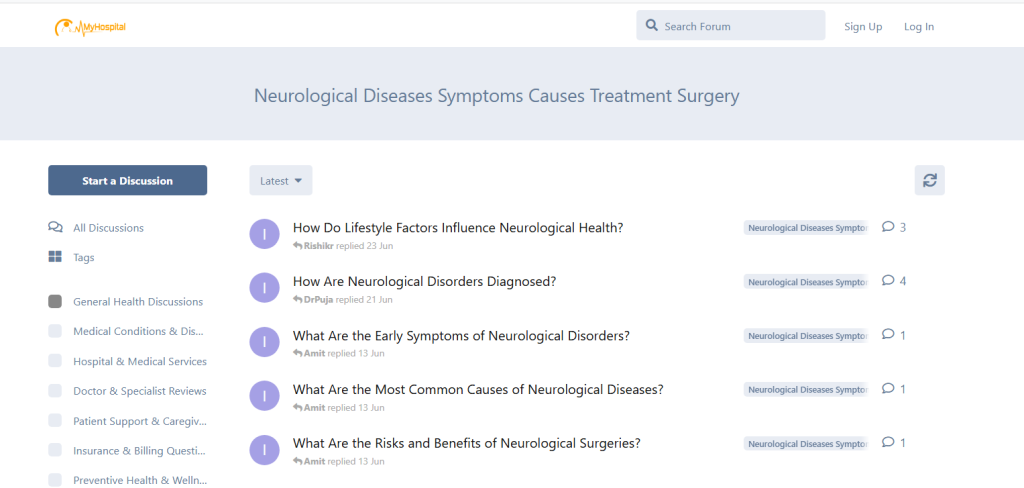
For decades, a Parkinson’s or Alzheimer’s diagnosis meant managing an inevitable decline. But a new wave of precision neurology is challenging that fate, offering not just treatment, but the potential for neural repair. The epicenter of this revolution isn’t where you might expect. It’s happening in specialized “neuro-hubs” around the globe, where cutting-edge technology meets world-class expertise, making revolutionary care more accessible than ever through medical tourism.
If you or a loved one is facing a neurological disorder, understanding this new landscape is your most powerful tool. This guide will demystify common conditions, explore the latest treatments, and reveal how a strategic approach to global healthcare can open doors to life-changing outcomes.
Understanding the Command Center: A Primer on Neurological Diseases
Your brain and nervous system are the command center for everything you do, think, and feel. When this complex network is disrupted, the effects can be wide-ranging.
Common Neurological Disorders & Their Warning Signs:
- Parkinson’s Disease: More than just a tremor. Look for bradykinesia (slowness of movement), muscle rigidity, postural instability, and changes in speech and writing.
- Essential Tremor: An involuntary, rhythmic shaking that typically occurs during voluntary movements like drinking or writing. It’s often misdiagnosed as Parkinson’s.
- Epilepsy: Characterized by recurrent, unprovoked seizures. Symptoms can vary from brief lapses in awareness to full-body convulsions.
- Brain Tumors: Symptoms depend on the tumor’s location but can include persistent headaches, seizures, nausea, vision problems, and personality changes.
- Spinal Disorders: (e.g., Stenosis, Herniated Discs) Often cause pain, numbness, or weakness that radiates down the arms or legs.
- Alzheimer’s Disease & Dementia: The most common early sign is memory loss that disrupts daily life, along with challenges in planning, solving problems, and confusion with time or place.
Actionable Tip: Don’t dismiss persistent symptoms. Early diagnosis is critical. Start with a neurologist and insist on advanced imaging (MRI, CT) and thorough testing to establish a precise baseline.
The Modern Treatment Arsenal: From Micrometer Precision to Neural Modulation
The one-size-fits-all approach to neurology is obsolete. Today’s treatments are personalized, minimally invasive, and remarkably effective.
Case Study: David’s Story – Reclaiming Life from Parkinson’s with DBS
David, a 68-year-old engineer, saw his world shrink as his Parkinson’s medications lost their effectiveness, causing debilitating “off” periods. His local options were limited. After extensive research, he traveled to a JCI-accredited hospital in Asia renowned for its Deep Brain Stimulation (DBS) program. There, a multidisciplinary team of neurologists, neurosurgeons, and physiotherapists tailored a treatment plan. During the procedure, a neurostimulator (like a “brain pacemaker”) was implanted to deliver precise electrical pulses to the brain regions controlling his movement. The result? A dramatic reduction in his tremors and rigidity, and a significant decrease in his medication needs. David regained his independence and returned to his beloved hobby of gardening.
Breakthrough Treatments Now Accessible Globally:
- Deep Brain Stimulation (DBS): For Parkinson’s, Essential Tremor, and Dystonia.
- Laser Ablation & Focused Ultrasound: Minimally invasive techniques to destroy small, well-defined brain lesions or tumors without a single incision.
- Advanced Micro-Neurosurgery: Using high-powered microscopes and neuro-navigation, surgeons can operate on the brain and spine with unparalleled precision, preserving healthy tissue.
- Gamma Knife & CyberKnife Radiosurgery: Non-surgical radiation therapy that targets brain tumors and vascular malformations with sub-millimeter accuracy.
- Comprehensive Memory Clinics: Offering holistic approaches to dementia, including cognitive therapies, medication management, and caregiver support often unavailable in standard settings.
The Informed Patient’s Guide to Medical Tourism for Neurology
Choosing to travel for neurological care is a significant decision. It’s not about finding a “cheap” surgery; it’s about accessing superior technology, shorter wait times, and concentrated expertise.
Surprising Statistic: A recent study found that patients traveling for complex neurosurgical procedures reported a 95% satisfaction rate, citing the high surgeon volume, state-of-the-art facilities, and comprehensive care coordination as key factors.
The Strategic Advantages of Going Global:
- Access to World-Renowned ‘Neuro-Specialists’: Many top-tier hospitals abroad have surgeons who perform hundreds of specific procedures (like DBS) annually, far exceeding the volume of many Western centers. High volume is directly linked to better outcomes.
- Zero Wait Times: While waiting lists for specialized neurosurgery can be months or years in some countries, leading hospitals in destinations like India, Turkey, Germany, and South Korea can schedule procedures within weeks.
- Integrated, Multidisciplinary Care: The best centers provide a “one-stop shop” where you see the neurologist, neurosurgeon, radiologist, and rehabilitation specialist in a coordinated team, streamlining your entire care journey.
- Cost-Efficiency without Compromise: Even without insurance, the all-inclusive cost for a complex procedure like a brain tumor resection or DBS surgery can be 30-70% less than in the US, while maintaining JCI-accredited standards of quality and safety.
Insider Strategies for a Safe and Successful Journey:
- Vet the “Center of Excellence,” Not Just the Hospital: Look for hospitals with dedicated neuroscience institutes and proven outcomes for your specific condition.
- Request a Remote Second Opinion: Most top hospitals offer this service. It allows you to present your case and receive a preliminary treatment plan and cost estimate before you commit to travel.
- Understand the Full Pathway: A reputable medical tourism provider will manage everything: visas, airport transfers, hospital admission, accommodation for companions, and most importantly, a seamless handover of medical records to your home physician.
Your Journey to Renewed Hope Starts with an Informed Decision
Facing a neurological disease can feel isolating, but you are not alone. The global medical landscape has evolved to put unprecedented power and choice back into the hands of patients. By looking beyond borders, you are not “going abroad for surgery”—you are strategically accessing a global standard of neurological care.
Ready to Explore Your Options with Confidence?
At MyHospitalNow.com, we connect you with a carefully vetted network of the world’s leading neuroscience centers. We believe in transparency, expertise, and empowering you with the information you need to make the best decision for your health.